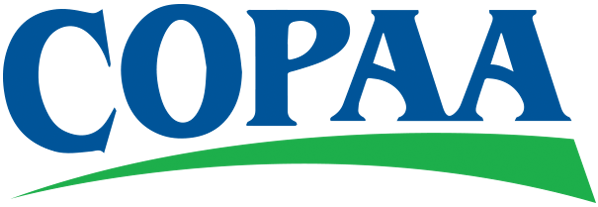Introduction
As a parent, ensuring your child receives the education they deserve is a top priority. This task can become more complex when your child has special needs or disabilities. It's essential to understand the differences between two key legal frameworks designed to provide an appropriate education for such students: the Individualized Education Program (IEP) and the 504 Plan, both operating under federal laws, the Individuals with Disabilities Education Act (IDEA) and the Rehabilitation Act, respectively. In this extended blog, we will delve deeper into the distinctions between IEPs and 504 Plans, equipping you with the knowledge you need to make informed decisions about your child's education.
1. Individualized Education Program (IEP):
-
What is an IEP? The Individualized Education Program (IEP) is a comprehensive and legally binding document established to provide specialized educational services and related services to students with documented disabilities. The key law that governs IEPs is the Individuals with Disabilities Education Act (IDEA) at the federal level and after that, each state has its chapters of law that interpret how that state applies IDEA. Each individual school district then interprets and carries out IDEA and their state law in different ways. The primary goal of an IEP is to ensure that children with disabilities receive a Free Appropriate Public Education (FAPE) tailored to their unique needs.
-
Who Qualifies for an IEP? To be eligible for an IEP, a student must have a documented disability that falls under IDEA. A student's eligibility is determined through an Educational Evaluation completed by the school. The school's evaluation will take into consideration any official doctor's diagnosis, a private evaluation, or an independent evaluation when completing an educational evaluation. The IDEA federal law is in place to guarantee that students with disabilities have equal access to an appropriate education in the least restrictive environment. It includes students with a wide range of needs, including Specific Learning Disabilities (SLD), Other Health Impairments, Autism Spectrum Disorder (ASD), Emotional Disturbance, Speech or Language Impairment, Visual Impairment including blindness, Deafness, Hearing Impairment, Deaf-blindness, Orthopedic Impairment, Intellectual disability, Traumatic Brain Injury (TBI), Multiple Disabilities,
-
The IEP ProcessThe development of an IEP involves a collaborative team, including the student's parents, a special education teacher, and other school staff. It requires creating measurable goals, individualized accommodations, and specific plans to offer an appropriate education while ensuring inclusion in general education classrooms. The IEP is updated annually to reflect the child's progress and it is also considered a living document because it can be revised as needed no matter the anniversary date.
-
Examples of IEP Accommodations IEP accommodations are changes and supports that are provided to students with disabilities to help them access the general curriculum and participate in the educational process on an equal basis with their peers. These accommodations do not change the fundamental content or expectations of what a student is learning but are designed to remove barriers that may hinder a student's ability to learn or demonstrate their knowledge and skills. A few examples of accommodations would be:
-
Extended Time for testing or assignments
-
Visual Supports
-
Alternative Testing Environments
-
Flexible Seating
-
Note Taking Supports
-
-
Examples of IEP Modifications Modifications refer to significant changes made to the curriculum and educational content to meet the individual needs of students with disabilities. Unlike accommodations, which provide support and access to the general curriculum without changing its fundamental content, modifications involve altering the curriculum itself. These changes are often necessary when the standard curriculum is not appropriate or accessible for a student with a disability. Here are just a few examples of modifications:
-
Alternate Curriculum
-
Different Grade Level Material
-
Simplified Language
-
Reduced Content
-
Flexible Scheduling
-
2. 504 Plan:
-
What is a 504 Plan? A 504 Plan is a written document established under Section 504 of the Rehabilitation Act. Unlike IEPs, which primarily focus on specialized academic instruction, 504 Plans concentrate on accommodations to create equal access to the general education curriculum.
-
Who Qualifies for a 504 Plan? To be eligible for a 504 Plan, a student must have a disability that substantially limits a major life activity. These disabilities might not necessitate specialized instruction, but they do require accommodations to level the playing field in the learning environment.
-
The 504 Plan ProcessThe process of developing a 504 Plan generally involves collaboration between school administrators, the student's parents, shared information from family doctors, and other school staff. The goal is to determine specific accessibility requirements that will support the student in a regular classroom setting.
-
Examples of 504 Plan Accommodations504 Plan accommodations might include preferential seating, assistive technology, extended time for assignments and tests, or any other accommodation that enables the student to participate fully in the general education curriculum.
The Main Difference:
The main difference between a 504 Plan and an Individualized Education Program (IEP) lies in the level of support and services provided to students with disabilities. A 504 Plan is designed to support students with disabilities who have a physical or mental impairment that substantially limits major life activities, encompassing a wide range of conditions. It provides accommodations and modifications to help these students access the general education curriculum. In contrast, an IEP is specifically for students who require specialized instruction due to one of the 13 disability categories outlined in federal special education law. IEPs offer comprehensive services, including academic, behavioral, and developmental goals, as well as related services like speech therapy or one-on-one support. The distinction is that a 504 Plan ensures equal access and non-discrimination, while an IEP offers specialized instruction and related services to meet individual needs, governed by the legal framework of IDEA. The determination of which plan is appropriate is based on a careful evaluation of the student's needs.
IEPs and 504 Plans in the Educational Journey:
-
Public Schools vs. Private Schools: It's important to note that IEPs and 504 Plans can apply to both public and private schools. However, public school districts often have greater access to federal funding, which can result in more extensive services and accommodations for students.
-
Transitions to Secondary Education: As your child progresses through their education, the use of IEPs and 504 Plans may evolve. It's essential to understand how these legal documents carry over into secondary education, as the needs of students may change with age.
-
State Laws and School Team Collaboration: While federal laws like IDEA and the Rehabilitation Act provide overarching guidelines, state laws can also impact your child's education. Effective collaboration with the school team and an advocate if you are unsure of the laws and your rights, is essential to ensure your child's unique needs are met within the bounds of state and federal regulations.
Conclusion
Understanding the interrelationship of IDEA, the Rehabilitation Act, and the legal requirements governing IEPs and 504 Plans is vital for ensuring your child's educational success. Both frameworks play an essential role in promoting the civil rights of students with disabilities in the United States, making the public school system more inclusive and accessible. Collaborating with the IEP team or the school staff to create the most effective accommodations for your child's unique needs is an important responsibility that paves the way for their academic and social development. Moreover, remember that seeking a special education advocate to guide disputes in the implementation of these legally binding documents, ensures your child receives the free appropriate public education they deserve. Your child's education is a journey, and understanding the intricacies of IEPs and 504 Plans is an invaluable tool to make that journey a successful one, allowing your child to thrive and reach their full potential.


